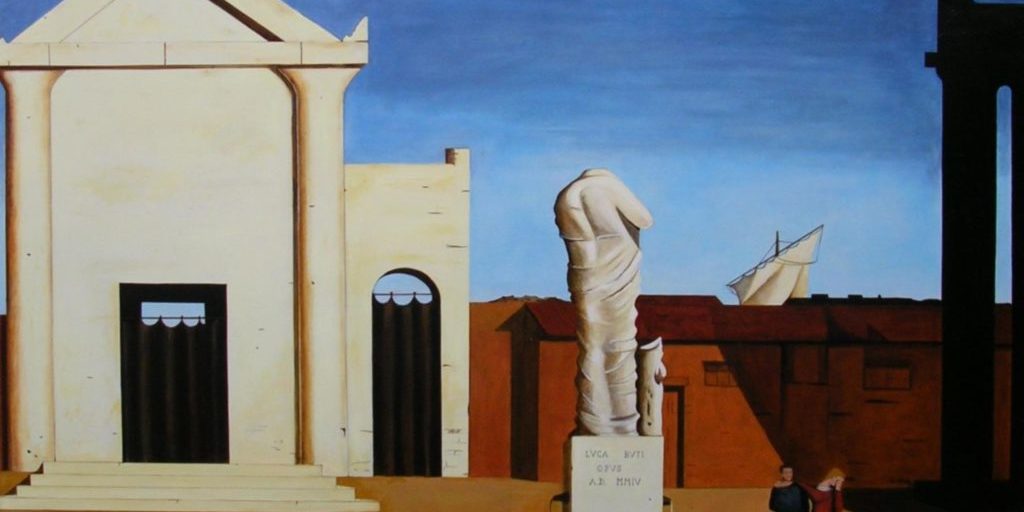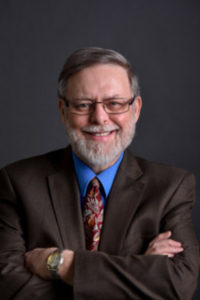
Can Theology Do Without Metaphysics? Part I
The death of Immanuel Kant in 1804 was a watershed in the history of Western philosophy, theology, jurisprudence, political theory and ethics. After Kant, the classical heritage of Plato and Aristotle, the founders of the wisdom tradition called metaphysics, ceased to be foundational for Western thinking about the nature of the good, God, right, politics, and morals. Modernity triumphed over Christendom.
Classical metaphysics made the West unique among the cultures of the world because an account of reality arose in Western Christendom in which the highest human wisdom was creatively fused with the Divine wisdom of the Incarnation as described in the Bible to form a distinctively Christian metaphysics.
Natural Law
The classical metaphysics of premodern Western culture sought to articulate what C. S. Lewis called “the Dao,” that is, the natural law that many cultures have recognized as built in to the fabric of reality. This natural law or wisdom has functioned as the foundation of cultures from Egypt to China to Israel. Positive law is an elaboration of it. Religion reinforces it. Political arrangements are judged by it. Morals are based on it.
Although many cultures recognize in varying degrees the claims exerted by reality on human behavior, it was only in the West that metaphysics arose as a rational explication of these claims. This occurred as a result of the fusion of Greek philosophy, Roman law, and Biblical theology. Although a deep knowledge of metaphysics has always been limited to a few, highly educated, individuals, it was preserved and passed down through the centuries by the central institutions of Western culture – the church and the university – because of its importance for the culture as a whole.Theology detached from reality would lose touch with the one, true, living, God. Click To Tweet
The medieval university consisted of a faculty of arts which sought wisdom through the study of the liberal arts culminating in metaphysics. Metaphysics thus served as the foundation of the three faculties of law, theology, and medicine. These faculties depended on a true account of reality in order to remain in contact with the real world rather than degenerating into a parody of reason in which the human imagination was allowed to float free of the real world. Medicine detached from reality would not cure disease. Law detached from reality would lead to tragic utopianism and/or anarchy. Theology detached from reality would lose touch with the one, true, living, God. Scientific knowledge must bow to reality and be shaped by it or else it becomes merely a parody of science, a “science” that is reduced to an instrument of ideology – something we see increasingly today and call “political correctness.”
A Unifying Science
Historically, metaphysics functioned as a unifying science by integrating the empirical and the intelligible realms of reality. It describes how the different levels of reality intersect and interact. In what way, for example, are the natures of things dependent on and shaped by universals? Metaphysics is necessary if one believes that the cosmos we experience depends for its existence and coherence on a super-sensible reality that is prior to the sensible world. But apart from such a belief classical metaphysics appears unnecessary. This explains why it is widely assumed today that metaphysics has been superseded by science. Scientism is the doctrine that all objective knowledge is derived from empirical science. (Everything else, including philosophy, religion, and morality is mere subjective opinion.) Scientism follows naturally from the view that nothing but empirical reality is objectively real.
Plato contributed the key premise for metaphysics. He solved the problem of why the identity of things persists over time even though all is in flux with his theory of the Forms or Ideas. He said that reality consists of two levels, one that we can access with our five senses and one that we can access only with the intellect. A true metaphysics unites the two realms in a synthesis of the intelligible and the empirical. This is as true of Aristotelian as of Platonic systems. We must remember that Platonism in late antiquity was an already ancient tradition that included insights from Aristotle and the Stoics, as well as being based on the texts of Plato himself.Metaphysics is necessary if one believes that the cosmos we experience depends for its existence and coherence on a super-sensible reality that is prior to the sensible world. Click To Tweet
During the first five centuries of church history, the Platonic tradition was integrated with biblical revelation and the result was the Christian Platonism of Augustine. Augustine’s thought, in turn, served as the foundation of medieval scholasticism and, thus, of Christendom itself. Historic Christian orthodoxy is a metaphysical account of reality, that is, an account of God and all things in relation to God. Christian theology unifies knowledge of the world derived from metaphysical analysis with special revelation.
In the medieval period Christian theologians regarded the special revelation of Scripture as the highest form of knowledge and as the high point of a metaphysical system in which the entirety of reality (including both the empirical and the intelligible) was integrated together in relation to the transcendent, Creator God. Etienne Gilson shows that in the system of Thomas Aquinas what can be known by reason alone (philosophy) is subordinated to the higher authority of special revelation, yet philosophy is useful in articulating the relation of things to God. The resulting synthesis of faith and reason is the high point in human intellectual achievement so far in history and its regrettable breakdown was the cause of the pathological condition known as modernity.
Reformation, not Rejection
It cannot be stressed enough that the Enlightenment, not the Reformation, was the true rupture with classical tradition and historic Christian trinitarian and Christological orthodoxy. The Reformers had a decline narrative in which the church had been going downhill in the high to late middle ages and so they favored the “sounder scholastics” of whom Augustine, Peter Lombard and Thomas Aquinas were examples. Often the Protestant scholastics evaluated how sound a particular writer was on a particular point by comparing him to Augustine, which is a way of judging the tradition by its fidelity, or lack thereof, to its origins. The Christian Platonism of the Great Tradition was not rejected by the Reformation. Some extreme statements that seem to dismiss Aristotle can be found in Luther’s works, but these were moderated in Luther’s later work and corrected by his successors. Protestant scholasticism was a reform, not a rejection, of medieval scholasticism. Protestantism is essentially conservative rather than modern.Historic Christian orthodoxy is a metaphysical account of reality, that is, an account of God and all things in relation to God. Click To Tweet
The Reformers sought to recover the sounder, older theology of the fathers and early scholastics. The Enlightenment, however, initiated a break with the classical metaphysics that the post-Reformation scholastics saw as integrally bound up with the trinitarian and Christological orthodoxy symbolized in the ecumenical creeds of the undivided church of the first five centuries. The crisis caused by the Enlightenment is still ongoing.
Kant followed Hume in rejecting the classical metaphysics that Christian theologians had developed by making use of the legitimate insights of Plato and Aristotle in a synthesis with the special revelation of Scripture. The influence of Hume and Kant was so strong that Western thought from that point onwards no longer took Christian metaphysics as its premise. It is impossible to overstate the damage this has caused. From then on philosophy, theology, jurisprudence, political theory and ethics developed on the assumption that the transcendent, Creator God either does not exist or cannot be known. Thus, the views of Lucretius and Epicurus, which had been rejected by the church fathers, superseded those of Augustine and Thomas in modernity. What we call “postmodernity” is the outworking of these destructive ideas.
Ignore or Invent
After Kant Western thought followed two strategies. The first was to ignore metaphysics as if it could suspend itself in midair and ignore the question of the relation of its pronouncements to reality itself. Existentialism and Fundamentalism are examples of this strategy. The second was to invent new, revised, metaphysical systems, all of which tend toward pantheism and are therefore heretical from a Christian perspective. Process theology and Moltmann’s dynamic panentheism are examples of this strategy.The implication of my argument is that Christian theology cannot be both orthodox and modern. Click To Tweet
Nineteenth century liberal theology sought to accommodate itself to historicism and scientism. Therefore it denied miracles and tried to transform Christianity from a religion of sin and salvation into one of social and moral improvement. In reaction to liberalism, twentieth century fundamentalism attempted, under the biblicist slogan “no creed but the Bible,” to defend miracles and the gospel of forgiveness of sins. In Karl Barth’s theology we see a more sophisticated version of the attempt to defend traditional Christianity by replacing metaphysics with Christian doctrine. Liberalism sought a new, modern, metaphysics, while fundamentalism sought to do without metaphysics. Barth sought to use doctrine as a replacement for metaphysics.
These three approaches can be seen as a taxonomy of the basic options for any movement of Christianity that seeks to be modern. I want to suggest that all three options fail in the task of preserving historic, orthodox, Christianity and try to explain why. The implication of my argument is that Christian theology cannot be both orthodox and modern.
*This article was originally published in Dr. Carter’s newsletter.

